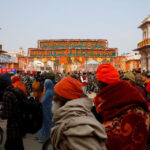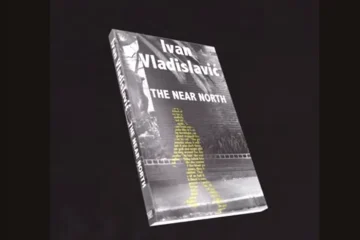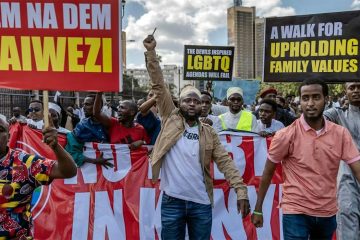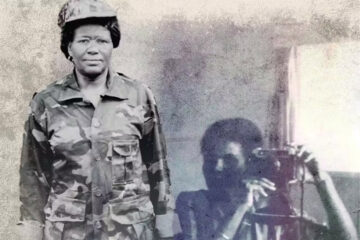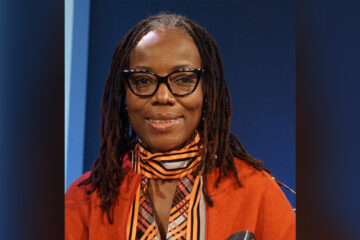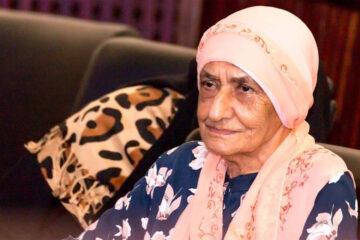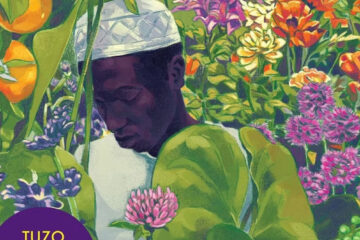WILLIE CURRIE
LADY Florrie returned to Johannesburg in February 1906. She was met at the station by her husband, Lord Sudden, and the new Governor of Transvaal Colony, Lord Selborne, who had replaced Lord Milner. The Rand Mines Native Band was playing the Radetzky March with gusto, and the gathered crowd was in a festive mood.
As had been expected of her on arrival, she had greeted the Rand Mine managers and their wives, as well as a number of members of Milner’s Kindergarten, who had stayed on after his departure to assist the new governor. Among them were Lionel Curtis, John Buchan, and the prolific architect, Herbert Baker.
After observing the social niceties of her arrival, Lord Sudden whisked her off to their new home, Arcadia, which was located below their former mansion, Hohenheim, on the Parktown Ridge.
Sitting in her drawing room and pondering her calendar, Lady Florrie recalled the pomp and circumstance that had accompanied her arrival. How sad it was that Johannesburg’s social life seemed to revolve around the comings and goings at the railway station. It was now June and there had been no social occasion worth mentioning since February. She did not count her “at home” gatherings for tennis and croquet on Saturday afternoons. Nor was the Ladies’ Calling Club up to scratch. Ladies coming over for tea and cake did not make a social event.
After the social whirl of London, it was all so depressing. The 1906 season was in full swing in London and there she sat in Johannesburg, twiddling her thumbs. In the wake of the Boer War, the City of Gold was in an economic slump, and the social scene that had been so enlivening in 1895, was now as dull as ditch water. It was her duty to do something about it.
***
The air had grown cooler as Bambatha and Co. ascended into the Drakensberg. They rode into the village of Impendle in the late morning. The villagers were gathered for an indaba, and the local chief was introducing one of the speakers: A.K. Soga. He represented the South African Natives Congress. Sporting a natty black suit with black brogues, Soga began his oration:
“I bring you greetings from the Executive Committee of the SANC. I also wish to express my condolences for the massacre of the brave fighters of Bambatha in the forests of Nkandla.
“My friends, we are fast approaching a crossroads. We put our faith in King Edward VII and the British Empire to protect our rights, after we supported them in their war with the Boers. We expected the British government to reward us for our commitment and sacrifices in the war. But, it seems the British are wavering and there is talk of unifying the four colonies into one country. However, the political cultures of the Transvaal and Orange River Colonies are vastly different from those of the Cape Colony, where there is a limited franchise for Native people.
“We are worried that the British are more focused on the unity of the Whites as a class against the other class, the Blacks. Conditions are changing. We assumed that we Natives would be received with confidence within the political family circle ‒ as true citizens of the Empire, and that the doors of the Temple of Peace would be thrown open so that Blacks might also enter in freely to share in the coming prosperity. It appears that is not to be.
“It is not enough for the Boer leaders to say that the Natives must be treated with justice and fairness. Our experience of the past has taught us how little we can expect from the likes of Generals Smuts and Botha, who are angling for self-government of the Transvaal Colony by ingratiating themselves with the great mining tycoons and the new governor-general, Lord Selborne. Rhodes may be dead, but the monopolies that he and his cronies established still dominate the economy.”
Bambatha, who unbeknownst to A. K. Soga was in the crowd, sighed. He was tempted to interrupt the meeting to provoke a discussion of armed resistance. “I know these SANC Natives. They are the purveyors of petitions to King and Empire, and anyone who will listen. But words will never bring our freedom. The only path forward is the rifle. Even our spears are not enough,” he muttered to himself.
“Come away, Nkosi,” urged Sebata. “We can’t afford to be recognised here. The men who attacked us at Howick Falls may still be on our trail. We must live to fight another day.”
Δ
Lady Florrie chaired the Ladies Committee of the Witwatersrand Agricultural Society, which was meeting at the Wanderers Club to discuss fundraising for the forthcoming Agricultural Show at Milner Park.
“I do so enjoy the performing arts,” said Lady Florrie. “It enlivens the soul and brings people together, too. That is so important in this time of anomie and depression. And I mean depression both in the economic and psychic sense. We need to lift people’s spirits and do our bit for the underprivileged.”
“What do you have in mind, Lady Florrie?” asked John Buchan.
“You know that Alfred Milner was very concerned about the lunatic asylum in Pretoria? The one with the unpronounceable name: Krankzinnigen-something. I do struggle with these Dutch names.”
“The Krankzinnigengesticht, now known as Weskoppies Mental Hospital,” said John Buchan. “That is a capital idea, Lady Florrie. The asylum is little better than a prison.”
“I was thinking that we could stage a play as a fundraiser. Perhaps one of those comedies by Aristophanes, or Seneca,” said Lady Florrie.
“Seneca was a tragedian,” said John Buchan. ‘But perhaps a tragedy is appropriate to the subject matter: The sturm und drang of madness”.
“Oh my, you do have a way with words, John,” cooed Lady Florrie. “Perhaps you had better direct it.”
***

“Do you really think taking up arms is the only way forward for our cause?” Seneca Shongololo asked Bambatha.
“I have thought about it ‒ especially since our defeat at Mome Gorge,” replied Bambatha. “I made a mistake sleeping in the open. I thought we would be safe for just one night. I underestimated the enemy ‒ and that remains our problem. We underestimate just how cruel and aggressive the British and the local colonists are. We think that they are gentlemen who play by the rules of cricket, and our mission-trained Natives put on their fine suits and try to emulate them. That is also a mistake.”
The group were making slow progress up the Sani Pass into Basutoland and could feel the iciness of the mountain snow creeping into their bones.
“Moshoeshoe, the first king of the Basotho, would agree with you,” said Sebata. “My grandfather, one of Moshoeshoe’s brothers, seldom agreed with Moshoeshoe’s policies – especially towards cannibals. However, he would always remind us boys that Moshoeshoe insisted that people who left Basutoland to work on the mines or the farms come back with rifles and horses.”
“Yes, I recall that when the Cape Colony ruled Basutoland and the Prime Minister, Gordon Sprigg, tried to prevent all Natives from carrying guns, the Basuto resisted and held the colonial officials at gunpoint in Maseru,” said Bambatha.
Queeneth was silent during the discussion of ‘men’s things’, but Dabulamanzi, her ancestor, was rearing to enter the debate. After a while, she could no longer suppress his voice: “I am of the view that there is no alternative but for Black men to pick up the spears that have fallen. We must remember those who fell, whether they were from our tribe or not. We must recall Makgatho, or the Venda, who fought the Boers with guns in the Zoutpansberg in the 1890s. There was also the Ndebele Uprising against Rhodes’s settlers in Matabeleland in 1896. That was led by the great spirit mediums, Mwari and Mlimo. We must also not forget Nkosi Magoeba who, like you, Nkosi Bambatha, took to the forests of Magoebaskloof to fight the Boers in 1895.”
“That is quite a roll call, Queeneth,” said Bambatha. “I also recall tensions in Sekhukhuneland involving the Rain Queen, Modjadji. It was rumoured that my king, Dinuzulu, had encouraged her to resist, but I don’t know if that was true.”
“What is true is that all of these uprisings failed to accomplish their goals of removing the colonists,” said Seneca. “The colonists are pitiless. When they look at us, they do not see us clearly. They see savages, even when we wear their suits, speak their King’s English and worship their God.”
They rode on in silence with much to ponder as they ascended into Basutoland. Seneca was struck by how Queeneth’s voice had descended into deeper tones as she spoke. What is going on with her? he wondered.
- This is an extract from Willie Currie’s book, SEIZURE, published by Quickfox. R299.00.





